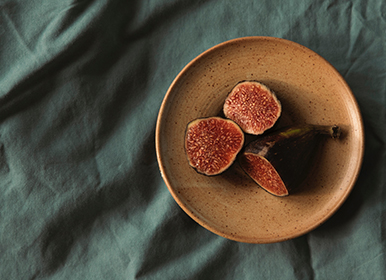
Constipation can be recognised as a relative term for presence of unsatisfactory stool or absence of stool. To battle the condition, you must ensure you consume fibre-rich diet and avoid or limit whole grains, legumes etc. to a certain extent. Exercising regularly and maintaining a fit schedule is also extremely important to lead a healthy life.
Janvi Chitalia, an Integrative Gut Microbiome health coach and functional nutritionist; founder of Body Cocoon, a Nutrition and Fitness Studio, explains in detail about what characteristic of constipation and gives a lowdown on foods that can help with constipation. Read on:
WHAT CHARACTERISES CONSTIPATION?
Infrequent stools usually are associated with:
• Hard stools
• Straining bowel movements
• Taking excessive time to pass a bowel movement
• Abdominal pain
• Bloating
• The feeling of incomplete bowel evacuation
• Three or fewer bowel movements per week
There are two types in which constipation can present itself, chronic or acute.
• Acute constipation can cause haemorrhoids anal fissures. It could be slow movement of the stool or irritable bowel syndrome.
• Chronic constipation over the years is a matter of concern, as when unsatisfactory bowel is a regular issue, the waste waiting to be excreted sits in the large intestine (colon), before being evacuated. The main function of the large intestine is reabsorption, however as new food is absorbed by the water in the intestine, the excretory materials from the waste are also reabsorbed back into the circulation causing toxins from the waste into the body. These toxins can cause hormonal imbalances, endocrine disruptions, gut imbalances, and toxin overload in the system.
Foods that help constipation are divided into two parts: insoluble and soluble.
Soluble Fibre
Soluble fibre contains pectins, mucilage and gums. These help slow down passage time of the chyme or food. Pectins are fermented by bacteria help to pull in water into the intestine, softening the stool and improving transit time. Food sources for soluble fibre can be found in oats, apples, pears, most fruits and vegetables and psyllium husk.
Insoluble Fibre
Water insoluble fibres are lignins such as sweet potato. They bind with water and increase the volume of chyme in the intestine. Insoluble fibres are usually found in nuts, brans, skins of fruits and vegetables and prunes. Green vegetables such as kale, broccoli, spinach contain fibre which add bulk to the stools and help them to pass well.
FOODS TO CONSUME
1. Chia Seeds
Chia seeds is high on fibre and help to bulk up and form a gel-like substance in the bowel. The amazing power of chia seeds is its ability to absorb up to more than twelve times their own density and bulk up the stools.
2. Flaxseeds
They contain a mix of insoluble and soluble fibre. Short chain fatty acids produced during fermentation of soluble fibre leads to increasing mobility and stimulating bowel movements.
Flaxseeds should ideally be grounded without roasting to retain properties and stored in an opaque container in the fridge to avoid it from losing its properties. Cold-pressed flaxseed oil can also be used.
3. Figs And Raisins
When figs and raisins are soaked over a couple of hours, they promote healthy bowel movements, an enzyme in fig called ‘ficain’ helps to stimulate bowel movement and regulate peristalsis.
4. Probiotics
Probiotics such as kefir and kombucha or fermented vegetables are helpful in adding the right strains of bacteria and balancing the microbes in the gut that help to improve digestive issues and lead to enhanced gut motility.
5. Rainbow Coloured Vegetables
Rainbow coloured fruits and vegetables are a must to have in order to enjoy the benefits of all the polyphenols, the bioflavonoids and also the fibre rich properties help to enhance motions and support the process of digestion.





